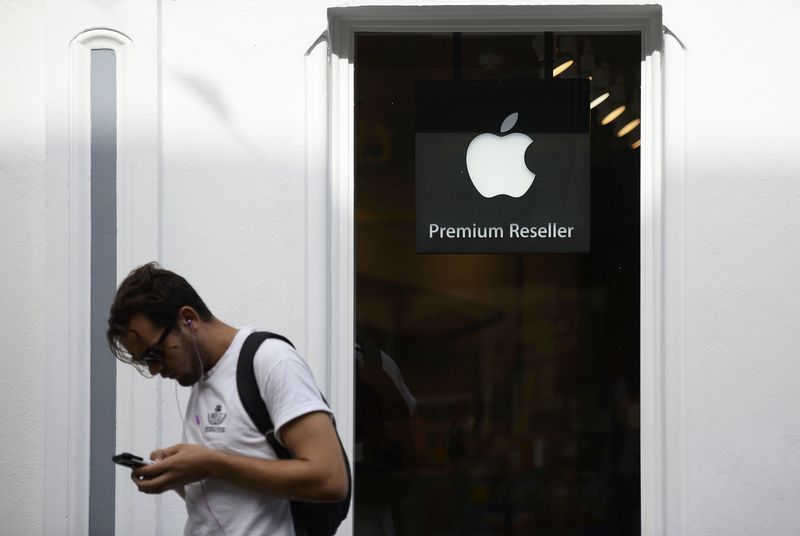This post was originally published on this site
https://i-invdn-com.investing.com/trkd-images/LYNXMPEJ4N0S1_L.jpg
(Reuters) – The U.S. solicitor general on Tuesday urged the U.S. Supreme Court to reject an appeal by Apple Inc (NASDAQ:AAPL) and Broadcom (NASDAQ:AVGO) Inc stemming from their $1.1 billion trial loss to the California Institute of Technology in a patent infringement case.
Solicitor General Elizabeth Prelogar said the U.S. Court of Appeals for the Federal Circuit was correct when it ruled last year that the companies could not seek to invalidate Caltech’s patents in court after Apple failed to raise its invalidity arguments at the U.S. Patent Office.
Caltech declined to comment on the solicitor general’s filing. Representatives for the companies and the solicitor general’s office did not immediately respond to requests for comment Wednesday.
Pasadena, California-based Caltech sued Apple and Broadcom in Los Angeles federal court in 2016, alleging millions of iPhones, iPads, Apple Watches and other devices with Broadcom Wi-Fi chips infringed its data-transmission patents.
Caltech has also sued Microsoft Corp (NASDAQ:MSFT), Samsung Electronics (OTC:SSNLF) Co, Dell Technologies (NYSE:DELL) Inc and HP Inc (NYSE:HPQ) for infringing the same patents in separate cases that are still pending.
A jury in 2020 ordered Apple to pay Caltech $837.8 million and Broadcom to pay $270.2 million. The Federal Circuit took issue with the amount of the award and sent the case back last year for a new trial on damages, which is yet to be scheduled.
Apple and Broadcom had argued at the Federal Circuit that they should have been allowed to challenge the patents’ validity at trial. The appeals court upheld the decision to bar the invalidity arguments because Apple previously could have raised them in its petitions for Patent Office review of the patents.
The companies told the justices that the Federal Circuit misread the law, which only bars arguments that could have been raised during the review itself.
Prelogar said in her Tuesday brief that the Federal Circuit interpreted the law correctly.

